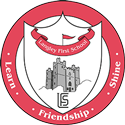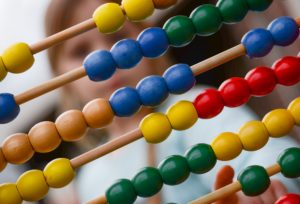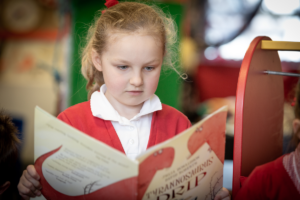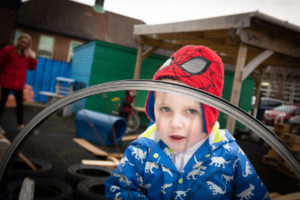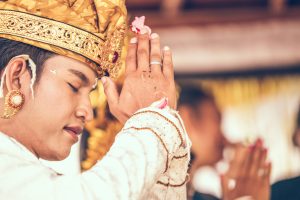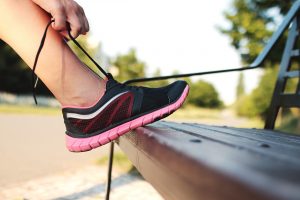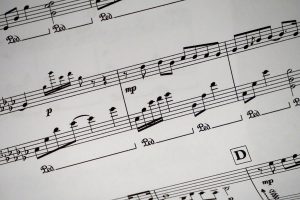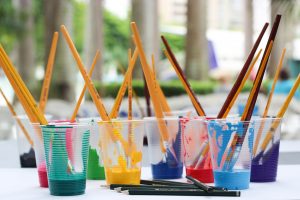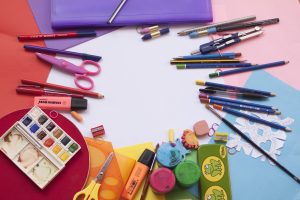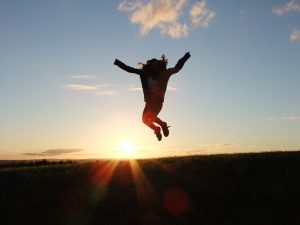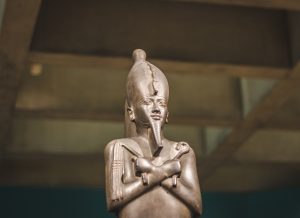PSHE (including RSE)
INTENT: We believe that a strong PSHE education is important to help our pupils gain the knowledge and attributes to fulfil their potential and become happy, successful and well-rounded members of society. We use PSHE as a way to support our children’s development, to enable them to understand and respect who they are and maintain their individuality and to empower them with a voice. It is our responsibility to deliver a high-quality and age-appropriate RSE curriculum due to the increasingly complex world that our children are growing up in, both on and offline. Our curriculum has a strong emphasis on emotional literacy, self-regulation, building resilience and nurturing mental and physical health to ensure our children know how to be safe and healthy, and how to manage their academic, personal and social lives in a positive way.
"It’s lovely to be a part of a school who not only helps the children grow academically, but also cares so much about their social, emotional development and mental health I feel very happy and supported through both my children’s school experience so far." Parent comment 2022
We acknowledge that PSHE and RSE are intertwined and for that reason our RSE curriculum is embedded in our PSHE curriculum so that the key building blocks of children’s learning and understanding is consistent and progressive. Our PSHE (including RSE) curriculum at Langley First School links directly to our school values and ethos.
Our PSHE (including RSE) curriculum is a progressive and spiral scheme of learning. In planning the lessons, we ensure that learning from previous years is revisited and extended, adding new concepts, knowledge and skills, year on year as appropriate. We use a scheme of learning called Jigsaw as the basis for our curriculum and the content is then adjusted to reflect the composition of each individual class. We also welcome visitors into school and we use the Newcastle United Foundation to deliver additional lessons to enhance our PSHE (including RSE) curriculum as well as other external visitors. We use a variety of resources including songs, books, short animations, cartoons etc to deliver subject content in a relevant and engaging way.
IMPLEMENTATION: Our curriculum has designed by taking into consideration the context of the school and the opinions of staff, parents and governors. It is based on a spiral, progressive and fully planned scheme of work, personalised to suit the needs of the children in our care. We regularly reflect and adapt our curriculum to suit the needs of our children at that moment in time. We ensure the knowledge we teach is meaningful so that our children remember what they have learnt. Any gaps in their learning are addressed immediately and inform adjustments in our planning. We work with parents and send out information / Q&A booklets to help them support their children at home with PSHE (including RSE) skills.
IMPACT: We regularly check our curriculum is delivering the intent and that the content of our curriculum is remembered through informal ongoing assessments. We assess specific skills termly using a formal tracking system and GAP analysis is undertaken.
Being Me in My World Puzzle – Autumn 1
| Puzzle overview | EYFS | Year 1 | Year 2 | Year 3 | Year 4 |
|---|---|---|---|---|---|
| Being Me in My World | Pupils talk about how they have similarities and differences from their friends and how that is OK. They begin working on recognising and managing their feelings, identifying different ones and the causes these can have. The children talk about working with others and why it is good to be kind and use gentle hands. The children talk about what it means to be responsible. | Pupils focus on the Jigsaw Charter and as part of this they discuss rights and responsibilities, choices and consequences. They talk about being special and how to make everyone feel safe in their class as well as recognising their own safety. | Pupils discuss their hopes and fears for the year ahead – they talk about feeling worried and recognising when they should ask for help and who to ask. They talk in more details about rights and responsibilities; how to work collaboratively, how to listen to each other and how to make their classroom a safe and fair place. | Pupils learn to recognise their self-worth and identify positive things about themselves and their achievements. They talk about new challenges and how to face them with positivity. They talk about choices and consequences, working collaboratively and seeing things from other people’s points of view. The children talk about different feelings and the ability to recognise these feelings in themselves and others. | Pupils explore being part of a team and how their attitudes and actions and their effects on the whole class. They learn about their school and its community. They discuss democracy and link this to their own School Council, what its purpose is and how it works. They learn about group work, the different roles people can have, how to make positive contributions, how to make collective decisions and how to deal with conflict. They also learn about considering other people’s feelings. |
| Taught knowledge (Spiral curriculum so skills from previous years are re-visited and extended year-upon-year) | Know they have a right to learn and play, safely and happily Know that some people are different from themselves Know that hands can be used kindly and unkindly Know special things about themselves Know how happiness and sadness can be expressed Know that being kind is good | Understand their own rights and responsibilities with their classroom Understand that their choices have consequences Understand that their views are important Understand the rights and responsibilities of a member of a class | Understand the rights and responsibilities of class members Know about rewards and consequences and that these stem from choices Know that it is important to listen to other people Understand that their own views are valuable Know that positive choices impact positively on self-learning and the learning of others Identifying hopes and fears for the year ahead | Know that the school has a shared set of values Know why rules are needed and how these relate to choices and consequences Know that actions can affect others’ feelings Know that others may hold different views Understand that they are important Know what a personal goal is Understanding what a challenge is | Know their place in the school community Know what democracy is (applied to pupil voice in school) and how groups work together to reach a consensus Know that having a voice and democracy benefits the school community Know how individual attitudes and actions make a difference to a class Know about the different roles in the school community Know that their own actions affect themselves and others |
| Social and Emotional skills (Spiral curriculum so skills from previous years are re-visited and extended each year-upon-year) | Identify feelings associated with belonging Identify skills to play co-operatively with others Be able to consider others’ feelings Identify feelings of happiness and sadness Be responsible in the setting | Understand that they are safe in their class Identifying helpful behaviours to make the class a safe place Understand that they have choices Understanding that they are special Identify what it’s like to feel proud of an achievement Recognise feelings associated with positive and negative consequences | Know how to make their class a safe and fair place Show good listening skills Be able to work co-operatively Recognise own feelings and know when and where to get help Recognise the feeling of being worried | Make other people feel valued Develop compassion and empathy for others Be able to work collaboratively Recognise self-worth Identify personal strengths Be able to set a personal goal Recognise feelings of happiness, sadness, worry and fear in themselves and others | Identify the feelings associated with being included or excluded Be able to take on a role in a group discussion / task and contribute to the overall outcome Know how to regulate my emotions Can make others feel cared for and welcome Recognise the feelings of being motivated/unmotivated Can make others feel valued and included Be able to help friends make positive choices |
| Vocabulary (Spiral curriculum so vocabulary is cumulative and re-visited year-upon-year) | Kind, Gentle, Friend, Similar(ity), Different, Responsible, Feelings, Angry, Happy, Excited, Nervous, Sharing, Taking Turns | Safe, Special, Calm, Belonging, Rights, Responsibilities, Jigsaw Charter, Rewards, Proud, Consequences, Upset, Disappointed | Hopes, Fears, Actions, Praise, Reward, Consequence, Positive, Negative, Choices | Valued, Achievements, Personal Goal, Acknowledge, Affirm, Solutions, Support, Fairness, Choices, Co-Operate, Group Dynamics, Team Work, View Point | Included, Excluded, Description, School Community, Democracy, Decisions, Voting, Authority, Contribution, Observer |
Celebrating Difference Puzzle – Autumn 2
| Puzzle overview | EYFS | Year 1 | Year 2 | Year 3 | Year 4 |
|---|---|---|---|---|---|
| Celebrating Difference | Pupils are encouraged to think about things that they are good at, whilst understanding that everyone is good at different things. They talk about how we are the same in some ways and different in others; that makes everyone special. The children talk about their homes and are asked to explain why it is special to them. They talk about friendship and how to be a kind friend. | Pupils talk about friendships and ways to make and sustain relationships. They talk about how it might feel if you are on the receiving end of someone being unkind and who to ask for help. They learn what makes us unique and special and that it is OK to have differences from their friends | Pupils talk about gender stereotypes and that it is ok to not conform to stereotypes. They talk about children being picked on because they are different and that this shouldn’t happen. They recognise the difference between a one-off unkind incident and consistent bullying. | Pupils learn about families and that they are all different. The children talk about techniques to calm themselves down and discuss a technique called ‘solve it together.’ They They talk about being a by-stander to bullying and how they have choices. They also talk about giving and receiving compliments and the feelings associated with this. | Pupils talk about judging people by their appearance, first impressions and what influences their thinking on what is normal. They talk about online bullying and what to do if they suspect or know that it is taking place. The children talk about their own uniqueness and what is special about themselves. |
| Taught knowledge (Spiral curriculum so skills from previous years are re-visited and extended year-upon-year) | Know what being unique means Know the names of some emotions such as happy, sad, frightened, angry Know why having friends is important Know some qualities of a positive friendship Know that they don’t have to be ‘the same as’ to be a friend Know what being proud means and that people can be proud of different things Know that people can be good at different things Know that families can be different Know that people have different homes and why they are important to them Know different ways of making friends Know different ways to stand up for myself | Know what bullying means Know who to tell if they or someone else is being bullied or is feeling unhappy Know that people are unique and that it is OK to be different Know skills to make friendships Know that people have differences and similarities | Know the difference between a one-off incident and bullying Know that sometimes people get bullied because of difference Know that friends can be different and still be friends Know there are stereotypes about boys and girls Know where to get help if being bullied Know that it is OK not to conform to gender stereotypes Know it is good to be yourself Know the difference between right and wrong and the role that choice has to play in this | Know what it means to be a witness to bullying and that a witness can make the situation worse or better by what they do Know that conflict is a normal part of relationships Know that some words are used in hurtful ways and that this can have consequences Know why families are important Know that everybody’s family is different Know that sometimes family members don’t get along and some reasons for this | Know that some forms of bullying are harder to identify e.g. tactical ignoring, cyber-bullying Know the reasons why witnesses sometimes join in with bullying and don’t tell anyone Know that sometimes people make assumptions about a person because of the way they look or act Know there are influences that can affect how we judge a person or situation Know what to do if they think bullying is or might be taking place Know that first impressions can change |
| Social and Emotional skills (Spiral curriculum so skills from previous years are re-visited and extended year-upon-year) | Recognise emotions when they or someone else is upset, frightened or angry Identify and use skills to make a friend Identify some ways they can be different and the same as others Identify and use skills to stand up for themselves Identify feelings associated with being proud Identify things they are good at Be able to vocalise success for themselves and about others successes Recognise similarities and differences between their family and other families | Identify what is bullying and what isn’t Understand how being bullied might feel Recognise ways in which they are the same as their friends and ways they are different Know ways to help a person who is being bullied Identify emotions associated with making a new friend Verbalise some of the attributes that make them unique and special | Explain how being bullied can make someone feel Know how to stand up for themselves when they need to Understand that everyone’s differences make them special and unique Understand that boys and girls can be similar in lots of ways and that is OK Understand that boys and girls can be different in lots of ways and that is OK Can choose to be kind to someone who is being bullied Recognise that they shouldn’t judge people because they are different | Use the ‘Solve it together’ technique to calm and resolve conflicts with friends and family Be able to ‘problem-solve’ a bullying situation accessing appropriate support if necessary Be able to show appreciation for their families, parents and carers Empathise with people who are bullied Employ skills to support someone who is bullied Be able to recognise, accept and give compliments Recognise feelings associated with receiving a compliment | Be comfortable with the way they look Understand why they should accept people for who they are & identify their own uniqueness Be non-judgemental about others who are different Identify influences that have made them think or feel positively/negatively about a situation Identify feelings that a bystander might feel in a bullying situation Identify reasons why a bystander might join in with bullying Revisit the ‘Solve it together’ technique to practise conflict and bullying scenarios Identify when a first impression they had was right or wrong |
| Vocabulary (Spiral curriculum so vocabulary is cumulative and re-visited year-upon-year) | Different, Special, Proud, Friends, Kind, Same, Similar, Happy, Sad, Frightened, Angry, Family, Safe to be Me | Similarity, Difference, Bullying, Deliberate, Unfair, Included, Special, Unique | Boys, Girls, Stereotypes, Sad, Lonely, Help, Stand up for, Diversity, Fairness, Kindness, Value | Family, Loving, Caring, Safe, Conflict, Solve It Together, Resolve, Witness, Bystander, Gay, Compliment, Unique. | Character, Assumption, Judgement, Appearance, Accept, Influence, Opinion, Attitude, Deliberate, Cyber bullying, Text message, Website, Troll, Physical features, Impression |
Dreams and Goals Puzzle – Spring 1
| EYFS | Year 1 | Year 2 | Year 3 | Year 4 | |
|---|---|---|---|---|---|
| Puzzle overview Celebrating Difference | Pupils talk about challenges and discuss not giving up. They talk about goals and resilience. They are encouraged to think about jobs that they might like to have when they are older and are taught to associate what they learn now with being able to have the job they want. | Pupils will learn to recognise when they do things well. They will talk about setting simple goals and know how to achieve them as well as how to overcome difficulties. They will learn to recognise the feelings associated with feeling like they have failed. They will discuss how best to work with a partner when aiming towards a shared goal. | Pupils discuss perseverance, as well as recognising their strengths as a learner. They talk about group work and reflect on who they work well with and what attributes they can contribute to group work. They also talk about sharing success with other people. | Pupils look at examples of people who have overcome challenges to achieve success and discuss what they can learn from these stories. They talk about facing learning challenges and identify their own strategies for overcoming these. They reflect on their progress and successes and identify what they could do better next time. | Pupils talk about their hopes and dreams for the future. They discuss how not all hopes and dreams can come true but they reflect on the personal attributes they need in order to be the most successful at achieving these dreams. They learn how to break goals down into smaller manageable steps. They reflect on their successes and the feelings associated with overcoming a challenge. |
| Taught knowledge (Spiral curriculum so skills from previous years are re-visited and extended year-upon-year) | Know what a challenge is Know that it is important to keep trying Know what a goal is Know how to set goals and work towards them Know which words are kind Know some jobs that they might like to do when they are older Know that they must work hard now in order to be able to achieve the job they want when they are older Know when they have achieved a goal | Know how to set simple goals Know how to achieve a goal Know how to identify obstacles which make achieving their goals difficult and work out how to overcome them Know when a goal has been achieved Know how to work well with a partner Know that tackling a challenge can stretch their learning | Know how to choose a realistic goal and think about how to achieve it Know that it is important to persevere Know how to recognise what working together well looks like Know what good group-working looks like Know how to share success with other people | Know that they are responsible for their own learning Understand what an obstacle is, how it can hinder achievement & know how to take steps to overcome it Know what dreams and ambitions are important to them Know about specific people who have overcome difficult challenges to achieve success Know what their own strengths are as a learner Know how to evaluate their own learning progress and identify how it can be better next time | Know how to make a new plan and set new goals even if they have been disappointed Know how to work as part of a successful group Know how to share in the success of a group Know what their own hopes and dreams are Know that hopes and dreams don’t always come true Know that reflecting on positive and happy experiences can help them to counteract disappointment Know how to work out the steps they need to take to achieve a goal |
| Social and Emotional skills (Spiral curriculum so skills from previous years are re-visited and extended year-upon-year) | Understand that challenges can be difficult Resilience Recognise some of the feelings linked to perseverance Recognise how kind words can encourage people Talk about a time that they kept on trying and achieved a goal Be ambitious Feel proud Celebrate success | Recognise things that they do well Explain how they learn best Recognise their own feelings when faced with a challenge/obstacle Recognise how they feel when they overcome a challenge/obstacle Celebrate an achievement with a friend Can store feelings of success so that they can be used in the future | Recognise how working with others can be helpful Be able to work effectively with a partner Be able to choose a partner with whom they work well Be able to work as part of a group Be able to describe their own achievements and the feelings linked to this Recognise their own strengths as a learner Recognise how it feels to be part of a group that succeeds and store this feeling | Can break down a goal into small steps Can manage feelings of frustration linked to facing obstacles Imagine how it will feel when they achieve their dream/ambition Recognise other people’s achievements in overcoming difficulties Recognise how other people can help them to achieve their goals Can share their success with others | Can identify the feeling of disappointment Be able to cope with disappointment Can talk about their hopes and dreams and the feelings associated with these Help others to cope with disappointment Enjoy being part of a group challenge Can share their success with others Can store feelings of success (in their internal treasure chest) to be used at another time |
| Vocabulary (Spiral curriculum so vocabulary is cumulative and re-visited year-upon-year) | Dream, Goal, Challenge, Job, Ambition, Perseverance, Achievement, Happy, Kind, Encourage | Proud, Success, Process, Working together, Team work, Celebrate, Overcome, Achieve | Realistic, Strength, Persevere | Aspirations, Enterprise, Motivated, Efficient, Frustration, ‘Solve It Together’ Technique, Solutions, Review, Evaluate | Determination, Resilience, Positive attitude, Disappointment, Cope, Help, Self-belief, Cooperation |
Healthy Me Puzzle – Spring 2
| Puzzle overview | EYFS | Year 1 | Year 2 | Year 3 | Year 4 |
|---|---|---|---|---|---|
| Celebrating Difference | Pupils learn about their bodies; the names of some key parts as well as how to stay healthy. They talk about healthy food choices. They discuss the importance of sleep and what they can do to help themselves get to sleep. They talk about hand washing and why it is important. They talk about what to do if they get lost and discuss stranger danger, | Pupils talk about healthy and unhealthy lifestyle choices and how these choices make them feel. They talk about hygiene, keeping themselves clean and about germs. The children learn about road safety. They talk about medicines and keeping safe around medicines. | Pupils know what their body needs to stay healthy and will talk about having a healthy relationship with food. They learn which foods give them energy and they will make healthy snacks. The children talk about things that make them feel relaxed and stressed. They will talk about medicines, how they work and how to use them safely | Pupils talk about the importance of exercise. They also discuss what heart and lungs do and why they are so important. The children talk about calories, fat and sugar; they discuss what each of these are and how the amount they consume can affect their health. The class talk about different types of drugs, the ones you take to make you better as well as other drugs. The children think about things, places and people that are dangerous and link this to strategies for keeping themselves safe. | Pupils look at friendship groups and how some people are leaders and followers. They are asked to reflect on their friendships. They will look at smoking and alcohol and the effects on health. They discuss why people may smoke or drink alcohol and talk about peer pressure and how to deal with it. |
| Taught knowledge (Spiral curriculum so skills from previous years are re-visited and extended year-upon-year) | Know what the word ‘healthy’ means Know some things that they need to do to keep healthy Know the names for some parts of their body Know when and how to wash their hands properly Know how to say no to strangers Know that they need to exercise to keep healthy Know how to help themselves go to sleep and that sleep is good for them Know what to do if they get lost | Know the difference between being healthy and unhealthy Know some ways to keep healthy Know how to make healthy lifestyle choices Know that all household products, including medicines, can be harmful if not used properly Know that medicines can help them if they feel poorly Know how to keep safe when crossing the road Know how to keep themselves clean and healthy Know that germs cause disease/illness Know about people who can keep them safe | Know what their body needs to stay healthy Know what relaxed means Know why healthy snacks are good for their bodies Know which foods given their bodies energy Know that it is important to use medicines safely Know what makes them feel relaxed/stressed Know how medicines work in their bodies Know how to make some healthy snacks | Know how exercise affects their bodies Know that the amount of calories, fat and sugar that they put into their bodies will affect their health Know that there are different types of drugs Know that there are things, places and people that can be dangerous Know when something feels safe or unsafe Know why their hearts and lungs are such important organs Know a range of strategies to keep themselves safe Know that their bodies need taking care of | Know the facts about smoking and its effects on health Know the facts about alcohol and its effects on health, particularly the liver Know ways to resist when people are putting pressure on them Know what they think is right and wrong Know how different friendship groups are formed and which friends they value most Know that they can take on different roles according to the situation Know some of the reasons some people start to smoke Know some of the reasons some people drink alcohol |
| Social and Emotional skills (Spiral curriculum so skills from previous years are re-visited and extended year-upon-year) | Can explain what they need to do to stay healthy# Recognise how exercise makes them feel Can give examples of healthy food Can explain what to do if a stranger approaches them Can explain how they might feel if they don’t get enough sleep Recognise how different foods can make them feel | Keep themselves safe Recognise how being healthy helps them to feel happy Recognise ways to look after themselves if they feel poorly Recognise when they feel frightened and know how to ask for help Feel good about themselves when they make healthy choices Realise that they are special | Feel positive about caring for their bodies and keeping it healthy Have a healthy relationship with food Desire to make healthy lifestyle choices Identify when a feeling is weak and when a feeling is strong Express how it feels to share healthy food with their friends | Respect their own bodies and appreciate what they do Can take responsibility for keeping themselves and others safe Identify how they feel about drugs Can express how being anxious or scared feels Able to set themselves a fitness challenge Recognise what it feels like to make a healthy choice | Recognise negative feelings in peer pressure situations Can identify the feelings of anxiety and fear associated with peer pressure Can tap into their inner strength and know-how to be assertive Recognise how different people and groups they interact with impact on them Identify which people they most want to be friends with |
| Vocabulary (Spiral curriculum so vocabulary is cumulative and re-visited year-upon-year) | Healthy, Exercise, Head, Neck, Shoulders, Chest, Stomach, Back, Hips, Legs, Knees, Feet, Toes, Sleep, Wash, Clean, Lost, Stranger, Scared, Trust | Unhealthy, Balanced, Toiletry items (e.g. toothbrush, shampoo, soap), Hygienic, Safe Medicines, Green Cross Code, Eyes, Ears, Look, Listen, Wait. | Lifestyle, Dangerous, Balanced diet, Portion, Energy, Nutritious. | Oxygen, Calories, Heartbeat, Lungs, Heart, Fitness, Saturated fat, Drugs, Advice, Harmful, Risk | Leader, Follower, Assertive, Agree, Disagree, Smoking, Pressure, Alcohol, Liver, Disease |
Relationships Puzzle – Summer 1
| Puzzle overview | EYFS | Year 1 | Year 2 | Year 3 | Year 4 |
|---|---|---|---|---|---|
| Celebrating Difference | Pupils are introduced to the key relationships in their lives. They learn about families and the different roles people can have in a family. They explore the friendships they have and that sometimes friends fall out and given strategies for how to mend this friendship. The children also learn about Calm Me and how they can use this when feeling upset or angry. | Pupil’s breadth of relationships is widened to include other families that may be different from their own. They learn families are founded on care, love and belonging. They consider their own significant relationships and why these are important. They learn about healthy and safe relationships and that touch can be used in kind and unkind ways. This supports later work on safeguarding. Pupils also consider their own personal attributes as a friend, family member and as part of a community, and celebrate these. | Pupils learning widens to include roles and responsibilities in a family and the importance of co-operation, appreciation and trust. Children consider the importance of trust in relationships and what this feels like. They learn about good secrets/surprises and worry secrets. They learn why ‘worry secrets’ should always be shared with a trusted adult. Children reflect upon different types of physical contact in relationships, which are acceptable and which ones are not. They practise strategies for being assertive when someone is hurting them or being unkind. | Pupils identify why family stereotypes can be unfair and may not be accurate. They will explore online relationships through gaming and Apps and are introduced to some rules for staying safe online. Children also learn that they are part of a global community and they are connected to others they don’t know in many ways. They investigate the wants and needs of other children who are less fortunate and compare these with their own. Children’s universal rights are discussed. | Pupils focus on the emotional aspects of relationships and friendships, including jealousy and loss/ bereavement. They learn that change is a natural in relationships and they will experience (or may have already experienced) some of these changes. They also learn that sometimes it is better if relationships end, especially if they are causing negative feelings or they are unsafe. |
| Taught knowledge (Spiral curriculum so skills from previous years are re-visited and extended year-upon-year) | Know what a family is Know that different people in a family have different responsibilities (jobs) Know some of the characteristics of healthy and safe friendships Know that friends sometimes fall out Know some ways to mend a friendship Know that unkind words can never be taken back and they can hurt Know how to use Calm Me to help when feeling angry Know some reasons why others get angry | Know that everyone’s family is different Know that families are founded on belonging, love and care Know that physical contact can be used as a greeting Know how to make a friend Know who to ask for help in the school community Know that there are lots of different types of families Know the characteristics of healthy and safe friends Know about the different people in the school community and how they help | Know that there are lots of forms of physical contact within a family Know how to stay stop if someone is hurting them Know there are good secrets and worry secrets and why it is important to share worry secrets Know what trust is Know that everyone’s family is different Know that families function well when there is trust, respect, care, love and co-operation Know some reasons why friends have conflicts & that friendships have ups and downs and sometimes change with time Know how to use the Mending Friendships or Solve it together problem-solving methods | Know that different family members carry out different roles or have different responsibilities within the family Know some of the skills of friendship, e.g. taking turns, being a good listener Know some strategies for keeping themselves safe online Know that they and all children have rights (UNCRC) Know that gender stereotypes can be unfair, e.g. Mum is always the carer, Dad always goes to work etc Know how some of the actions and work of people around the world help and influence my life Know the lives of children around the world can be different from their own | Know some reasons why people feel jealousy Know that loss is a normal part of relationships Know that negative feelings are a normal part of loss Know that sometimes it is better for a friendship/relationship to end if it is causing negative feelings or is unsafe Know that jealousy can be damaging to relationships Know that memories can support us when we lose a special person or animal |
| Social and Emotional skills (Spiral curriculum so skills from previous years are re-visited and extended year-upon-year) | Can identify what jobs they do in their family and those carried out by parents/carers and siblings Can suggest ways to make a friend or help someone who is lonely Can use different ways to mend a friendship Can recognise what being angry feels like Can use Calm Me when angry or upset | Can express how it feels to be part of a family and to care for family members Can say what being a good friend means Can identify forms of physical contact they prefer Can say no when they receive a touch they don’t like Can show skills of friendship Can praise themselves and others Can recognise some of their personal qualities Can say why they appreciate a special relationship | Can identify the different roles and responsibilities in their family Can recognise the value that families can bring Can recognise and talk about the types of physical contact that is acceptable or unacceptable Can identify the negative feelings associated with keeping a worry secret Can identify who they trust in their own relationships Can use positive problem-solving techniques to resolve a friendship conflict Can identify the feelings associated with trust Can give and receive compliments Can say who they would go to for help if they were worried or scared | Can identify the responsibilities they have within their family Know how to access help if they are concerned about anything on social media or the internet Can empathise with people from other countries who may not have a fair job or are less fortunate Understand that they are connected to the global community in many different ways Can use Solve it together in a conflict scenario and find a win-win outcome Can identify similarities in children’s rights around the world Can identify their own wants and needs and how these may be similar or different from other children in school and the global community | Can identify feelings and emotions that accompany jealousy Can suggest positive strategies for managing jealousy Can identify people who are special to them and express why Can identify the feelings and emotions that accompany loss Can suggest strategies for managing loss Can tell you about someone they no longer see Can suggest ways to manage relationship changes including how to negotiate |
| Vocabulary (Spiral curriculum so vocabulary is cumulative and re-visited year-upon-year) | Family, Mummy, Daddy, Grandparents, Sister, Brother, Relationship, Friend, Lonely, Argue, Fall-out, Words, Feelings, Angry, Upset, Calm me, Breathing, Yoga | Belong, Same, Different, Friends, Greeting, Touch, Feel, Like, Dislike, Help | Physical contact, Communication, Hugs, Acceptable, Not acceptable, Conflict, Surprise/Good secret, Worry secret, Trustworthy, Honesty | Unisex, Stereotype, Career, Win-win, Solution, Internet, Social media, Online, Risky, Gaming, Private messaging (pm), Direct messaging (dm), Fair trade, Inequality, Transport, Exploitation, Justice, United Nations, Equality, Deprivation, Hardship | Jealousy, Disbelief, Numb, Denial, Anger, Guilt, Sadness, Hope, Souvenir, Memento, Memorial, Acceptance, Remember, Loyal, Betrayal, Amicable |
Changing Me Puzzle – Summer 2
| Puzzle overview | EYFS | Year 1 | Year 2 | Year 3 | Year 4 |
|---|---|---|---|---|---|
| Celebrating Difference | Pupils are encouraged to think about how they have changed from being a baby. They learn the names and functions of some of the main parts of the body. They learn that our bodies change as we get older in lots of different ways. Pupils learn that change can bring about positive and negative feelings, and that sharing these can help. They also consider the role that memories can have in managing change. | Children are introduced to life cycles e.g. that of a frog and identify the different stages. They compare this with a human life cycle and look at simple changes from baby to adult e.g. getting taller, learning to walk etc. Pupils are taught the correct words for private parts of the body (those kept private by underwear: vagina, anus, penis, testicles). They are also taught that nobody has the right to hurt these parts of the body. Change is discussed as a natural and normal part of getting older which can bring about happy and sad feelings. Children practise a range of skills to help manage their feelings and learn how to access help if they are worried about change, or if someone is hurting them | Pupils look at different life cycles in nature including that of humans. They reflect on the changes that occur (not including puberty) between baby, toddler, child, teenager, adult and old -age. They are taught about different types of touch including identifying inappropriate touch and how to ask for help. Change is taught as a natural and normal part of growing up and the range of emotions that can occur with change are explored and discussed. | Pupil explore babies and what they need to grow and develop. They think about the feelings involved when babies are born. Children learn that it is usually the female that carries the baby in nature. Pupils start to recognise stereotypical ideas about parenting and family roles. Pupils will talk about the responsibilities and changes of moving into Year Four and then middle school. | Pupils learn that some of their personal characteristics come from their birth parents. They talk about self-esteem and body image. They learn that we all have perceptions about ourselves and others, and these may be right or wrong. They also reflect on how social media and the media can promote unhelpful comparison and how to manage this. They are made aware that as they continue to grow their bodies will change further (puberty) and how they can look after themselves and their personal hygiene. Pupils will spend time talking about their feelings associated with change and how to manage these. |
| Taught knowledge (Spiral curriculum so skills from previous years are re-visited and extended year-upon-year) | Know the names and functions of some parts of the body (see vocabulary list) Know that we grow from baby to adult Know who to talk to if they are feeling worried Know that sharing how they feel can help solve a worry Know that remembering happy times can help us move on | Know the names of male and female private body parts Know that there are correct names for private body parts and nicknames, and when to use them Know which parts of the body are private and that they belong to that person and that nobody has the right to hurt these Know who to ask for help if they are worried or frightened Know that animals including humans have a life cycle Know that changes happen when we grow up Know that people grow up at different rates and that is normal Know that learning brings about change | Know the physical differences between male and female bodies Know that private body parts are special and that no one has the right to hurt these Know who to ask for help if they are worried or frightened Know there are different types of touch and that some are acceptable and some are unacceptable Know that life cycles exist in nature Know that aging is a natural process including old age Know that some changes are out of an individual’s control Know how their bodies have changed from when they were a baby and that they will continue to change as they age | Know that in nature it is usually the female that carries the baby Know that in humans a mother carries the baby and this is where it develops Know that babies need love and care from their parents/carers Know about the different feelings that different members of the same family feel when a baby is born Know some of the changes that happen between being a baby and a child | Know that personal characteristics are inherited from birth parents Know about body image and how media can have a negative influence on it Know about the external physical changes in female and male bodies at puberty Know that change can bring about a range of different emotions Know that personal hygiene is important during puberty and as an adult Know that change is a normal part of life and that some cannot be controlled and have to be accepted |
| Social and Emotional skills (Spiral curriculum so skills from previous years are re-visited and extended year-upon-year) | Recognise that changing class can elicit happy and/or sad emotions Can say how they feel about changing class/ growing up Can identify how they have changed from a baby Can say what might change for them they get older Can identify positive memories from the past year in school/home | Understand and accept that change is a natural part of getting older Can suggest ways to manage change, e.g. moving to a new class Can identify some things that have changed and some things that have stayed the same since being a baby (including the body) Can express why they enjoy learning | Can say who they would go to for help if worried or scared Can say what types of touch they find comfortable/uncomfortable Be able to confidently ask someone to stop if they are being hurt or frightened Can appreciate that changes will happen and that some can be controlled and others not Be able to express how they feel about changes Can recognise the independence and responsibilities they have now compared to being a baby or toddler Can say what greater responsibilities and freedoms they may have in the future | Can suggest ways to help them manage feelings during changes they are more anxious about Can identify stereotypical family roles and challenge these ideas, e.g. it may not always be Mum who does the laundry Can express how they feel about babies Can describe the emotions that a new baby can bring to a family Can identify changes they are looking forward to in the next year | Can appreciate their own uniqueness and that of others Can express how they feel about puberty Can say who they can talk to about puberty if they have any worries Can express any concerns they have about puberty Have strategies for managing the emotions relating to change Can express how they feel about having children when they are grown up Can apply the circle of change model to themselves to have strategies for managing change |
| Vocabulary (Spiral curriculum so vocabulary is cumulative and re-visited year-upon-year) | Eye, Foot, Eyebrow, Forehead, Ear, Mouth, Arm, Leg, Chest, Knee, Nose, Tongue, Finger, Toe, Stomach, Hand, Baby, Grown-up, Adult, Change, Worry, Excited, Memories. | Life cycles, Adulthood, Mature, Male, Female, Vagina, Penis, Testicles, Anus, Learn, New, Grow, Feelings, Anxious, Coping | Control, Old, Young, Respect, Appearance, Physical, Baby, Toddler, Child, Teenager, Independent, Timeline, Freedom, Responsibilities, Public, Private, Touch, Texture, Cuddle, Hug, Squeeze, Like, Dislike, Acceptable, Unacceptable, Comfortable, Uncomfortable | Birth, Animals, Womb, Nutrients, Survive, Love, Affection, Care, Stereotypes, Task, Roles, Challenge, Looking forward | Puberty, Pubic hair, Breasts, Sweat, Wash, Voice breaking, Adam’s Apple, Personal, Unique, Characteristics, Puberty, Control, Emotions, Acceptance |
| SMSC Links | Every lesson from Early Years to Year 4 offers opportunities for children’s spiritual, moral, social and cultural (SMSC) development, and this is clearly mapped and balanced across each year group. Likewiseour curriculum is designed to provide structured opportunities in every lesson to practise and enhance the five skills associated with the emotional literacy (self-awareness, social skills, empathy, motivation and managing feelings). We believe that these opportunities are vital for children’s development, their understanding of themselves and others and in increasing their capacity to learn. |
| British Values | Our curriculum supports the British Values of Democracy, Rule of Law, Individual Liberty, Mutual Respect and Tolerance of those of different faiths and beliefs. It has been mapped lesson by lesson against the British Values agenda. |
Newcastle United Foundation
| Year 3 | Year 4 | |
|---|---|---|
| Knowledge Taught | Match Fit programme teaches the pupils about the importance of healthy lifestyles.They learn about the digestive system and the importance of fibre and water. Yhey learn about healthy food and a balanced meal. They learn about oral health and the importance of exercise. They discuss mental health and self-esteem. | The United as One programme uses examples of stereotyping, prejudice, discrimination and hate crime to teach pupils the importance of communites being United As One. Pupils discuss the impacts upon those targeted and learn how the law treats those who discriminate or commit a hate crime. |
| Knowledge Taught | To know that different food groups keep us healthy in different ways To know some examples of foods from three main food groups To understand the need for a balanced meal To know at least one cause of tooth decay To know that exercise can keep 4 main body parts strong To know that regular physical activity can help us feel positive To think creatively about ways to keep active To understand the meaning of self esteem To know that others can help boost your self esteem To recognise that you too can boost someone else’s self-esteem | To know that people have a cultural heritage. To recognise that people may be surrounded by a culture different from their cultural heritage. To understand what makes a culture. To know the meaning of stereotype. To know the meaning of prejudice. To be able to recognise situations where prejudice and stereotyping have been used. To know the meaning of discrimination. To know that the law of Britain says that people should not be discriminated against. To be able to recognise situations where discrimination has taken place. To know the meaning of hate crime. To discuss the consequences of hate crime. that hate crime can be reported. Know that bullying is repeated, unwanted and hurtful behaviour towards a person. Know that cyberbullying is unacceptable Be able to make a list of community rules where all members can feel respected, safe and happy. |
| Knowledge Taught | Vocabulary Talent, Quality. Self-esteem, Active, Vigorous, Balanced, Enamel, Dehydration, Cavity, Plaque, Bacteria | Vocabulary Culture, Multi-cultural, Cultural heritage, Stereotype, Prejudice, Pre-judging, Negative opinion, Race discrimination ( skin colour, nationality, cultural heritage), Age discrimination, Religious discrimination, Gender discrimination, Disability discrimination, Protected characteristics (race, age, religious belief, disability), Crime, Hate crime, Victim, Offender, Bullying, Cyberbullying, Hate bullying ( protected characteristics) |
Curriculum Coverage
Newcastle United Foundation
| Year 3 | Year 4 | |
|---|---|---|
| Knowledge Taught | Match Fit programme teaches the pupils about the importance of healthy lifestyles.They learn about the digestive system and the importance of fibre and water. Yhey learn about healthy food and a balanced meal. They learn about oral health and the importance of exercise. They discuss mental health and self-esteem. | The United as One programme uses examples of stereotyping, prejudice, discrimination and hate crime to teach pupils the importance of communites being United As One. Pupils discuss the impacts upon those targeted and learn how the law treats those who discriminate or commit a hate crime. |
| Knowledge Taught | To know that different food groups keep us healthy in different ways To know some examples of foods from three main food groups To understand the need for a balanced meal To know at least one cause of tooth decay To know that exercise can keep 4 main body parts strong To know that regular physical activity can help us feel positive To think creatively about ways to keep active To understand the meaning of self esteem To know that others can help boost your self esteem To recognise that you too can boost someone else’s self-esteem | To know that people have a cultural heritage. To recognise that people may be surrounded by a culture different from their cultural heritage. To understand what makes a culture. To know the meaning of stereotype. To know the meaning of prejudice. To be able to recognise situations where prejudice and stereotyping have been used. To know the meaning of discrimination. To know that the law of Britain says that people should not be discriminated against. To be able to recognise situations where discrimination has taken place. To know the meaning of hate crime. To discuss the consequences of hate crime. that hate crime can be reported. Know that bullying is repeated, unwanted and hurtful behaviour towards a person. Know that cyberbullying is unacceptable Be able to make a list of community rules where all members can feel respected, safe and happy. |
| Knowledge Taught | Vocabulary Talent, Quality. Self-esteem, Active, Vigorous, Balanced, Enamel, Dehydration, Cavity, Plaque, Bacteria | Vocabulary Culture, Multi-cultural, Cultural heritage, Stereotype, Prejudice, Pre-judging, Negative opinion, Race discrimination ( skin colour, nationality, cultural heritage), Age discrimination, Religious discrimination, Gender discrimination, Disability discrimination, Protected characteristics (race, age, religious belief, disability), Crime, Hate crime, Victim, Offender, Bullying, Cyberbullying, Hate bullying ( protected characteristics) |
Changing Me Puzzle – Summer 2
| Puzzle overview | EYFS | Year 1 | Year 2 | Year 3 | Year 4 |
|---|---|---|---|---|---|
| Celebrating Difference | Pupils are encouraged to think about how they have changed from being a baby. They learn the names and functions of some of the main parts of the body. They learn that our bodies change as we get older in lots of different ways. Pupils learn that change can bring about positive and negative feelings, and that sharing these can help. They also consider the role that memories can have in managing change. | Children are introduced to life cycles e.g. that of a frog and identify the different stages. They compare this with a human life cycle and look at simple changes from baby to adult e.g. getting taller, learning to walk etc. Pupils are taught the correct words for private parts of the body (those kept private by underwear: vagina, anus, penis, testicles). They are also taught that nobody has the right to hurt these parts of the body. Change is discussed as a natural and normal part of getting older which can bring about happy and sad feelings. Children practise a range of skills to help manage their feelings and learn how to access help if they are worried about change, or if someone is hurting them | Pupils look at different life cycles in nature including that of humans. They reflect on the changes that occur (not including puberty) between baby, toddler, child, teenager, adult and old -age. They are taught about different types of touch including identifying inappropriate touch and how to ask for help. Change is taught as a natural and normal part of growing up and the range of emotions that can occur with change are explored and discussed. | Pupil explore babies and what they need to grow and develop. They think about the feelings involved when babies are born. Children learn that it is usually the female that carries the baby in nature. Pupils start to recognise stereotypical ideas about parenting and family roles. Pupils will talk about the responsibilities and changes of moving into Year Four and then middle school. | Pupils learn that some of their personal characteristics come from their birth parents. They talk about self-esteem and body image. They learn that we all have perceptions about ourselves and others, and these may be right or wrong. They also reflect on how social media and the media can promote unhelpful comparison and how to manage this. They are made aware that as they continue to grow their bodies will change further (puberty) and how they can look after themselves and their personal hygiene. Pupils will spend time talking about their feelings associated with change and how to manage these. |
| Taught knowledge (Spiral curriculum so skills from previous years are re-visited and extended year-upon-year) | Know the names and functions of some parts of the body (see vocabulary list) Know that we grow from baby to adult Know who to talk to if they are feeling worried Know that sharing how they feel can help solve a worry Know that remembering happy times can help us move on | Know the names of male and female private body parts Know that there are correct names for private body parts and nicknames, and when to use them Know which parts of the body are private and that they belong to that person and that nobody has the right to hurt these Know who to ask for help if they are worried or frightened Know that animals including humans have a life cycle Know that changes happen when we grow up Know that people grow up at different rates and that is normal Know that learning brings about change | Know the physical differences between male and female bodies Know that private body parts are special and that no one has the right to hurt these Know who to ask for help if they are worried or frightened Know there are different types of touch and that some are acceptable and some are unacceptable Know that life cycles exist in nature Know that aging is a natural process including old age Know that some changes are out of an individual’s control Know how their bodies have changed from when they were a baby and that they will continue to change as they age | Know that in nature it is usually the female that carries the baby Know that in humans a mother carries the baby and this is where it develops Know that babies need love and care from their parents/carers Know about the different feelings that different members of the same family feel when a baby is born Know some of the changes that happen between being a baby and a child | Know that personal characteristics are inherited from birth parents Know about body image and how media can have a negative influence on it Know about the external physical changes in female and male bodies at puberty Know that change can bring about a range of different emotions Know that personal hygiene is important during puberty and as an adult Know that change is a normal part of life and that some cannot be controlled and have to be accepted |
| Social and Emotional skills (Spiral curriculum so skills from previous years are re-visited and extended year-upon-year) | Recognise that changing class can elicit happy and/or sad emotions Can say how they feel about changing class/ growing up Can identify how they have changed from a baby Can say what might change for them they get older Can identify positive memories from the past year in school/home | Understand and accept that change is a natural part of getting older Can suggest ways to manage change, e.g. moving to a new class Can identify some things that have changed and some things that have stayed the same since being a baby (including the body) Can express why they enjoy learning | Can say who they would go to for help if worried or scared Can say what types of touch they find comfortable/uncomfortable Be able to confidently ask someone to stop if they are being hurt or frightened Can appreciate that changes will happen and that some can be controlled and others not Be able to express how they feel about changes Can recognise the independence and responsibilities they have now compared to being a baby or toddler Can say what greater responsibilities and freedoms they may have in the future | Can suggest ways to help them manage feelings during changes they are more anxious about Can identify stereotypical family roles and challenge these ideas, e.g. it may not always be Mum who does the laundry Can express how they feel about babies Can describe the emotions that a new baby can bring to a family Can identify changes they are looking forward to in the next year | Can appreciate their own uniqueness and that of others Can express how they feel about puberty Can say who they can talk to about puberty if they have any worries Can express any concerns they have about puberty Have strategies for managing the emotions relating to change Can express how they feel about having children when they are grown up Can apply the circle of change model to themselves to have strategies for managing change |
| Vocabulary (Spiral curriculum so vocabulary is cumulative and re-visited year-upon-year) | Eye, Foot, Eyebrow, Forehead, Ear, Mouth, Arm, Leg, Chest, Knee, Nose, Tongue, Finger, Toe, Stomach, Hand, Baby, Grown-up, Adult, Change, Worry, Excited, Memories. | Life cycles, Adulthood, Mature, Male, Female, Vagina, Penis, Testicles, Anus, Learn, New, Grow, Feelings, Anxious, Coping | Control, Old, Young, Respect, Appearance, Physical, Baby, Toddler, Child, Teenager, Independent, Timeline, Freedom, Responsibilities, Public, Private, Touch, Texture, Cuddle, Hug, Squeeze, Like, Dislike, Acceptable, Unacceptable, Comfortable, Uncomfortable | Birth, Animals, Womb, Nutrients, Survive, Love, Affection, Care, Stereotypes, Task, Roles, Challenge, Looking forward | Puberty, Pubic hair, Breasts, Sweat, Wash, Voice breaking, Adam’s Apple, Personal, Unique, Characteristics, Puberty, Control, Emotions, Acceptance |
| SMSC Links | Every lesson from Early Years to Year 4 offers opportunities for children’s spiritual, moral, social and cultural (SMSC) development, and this is clearly mapped and balanced across each year group. Likewiseour curriculum is designed to provide structured opportunities in every lesson to practise and enhance the five skills associated with the emotional literacy (self-awareness, social skills, empathy, motivation and managing feelings). We believe that these opportunities are vital for children’s development, their understanding of themselves and others and in increasing their capacity to learn. |
| British Values | Our curriculum supports the British Values of Democracy, Rule of Law, Individual Liberty, Mutual Respect and Tolerance of those of different faiths and beliefs. It has been mapped lesson by lesson against the British Values agenda. |
